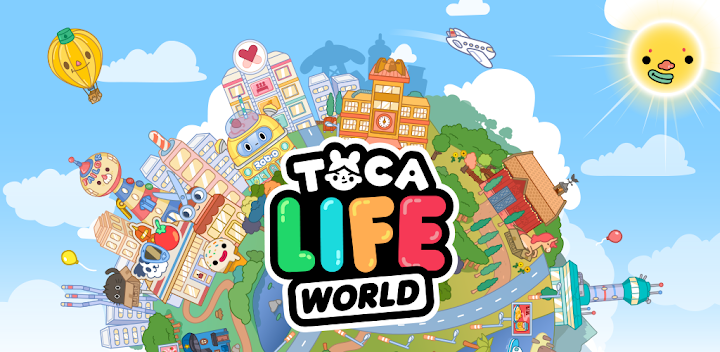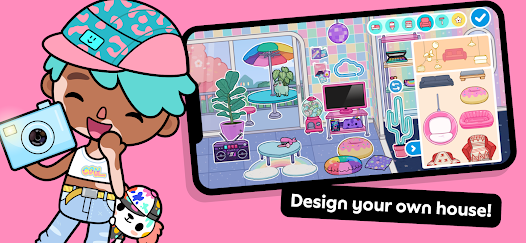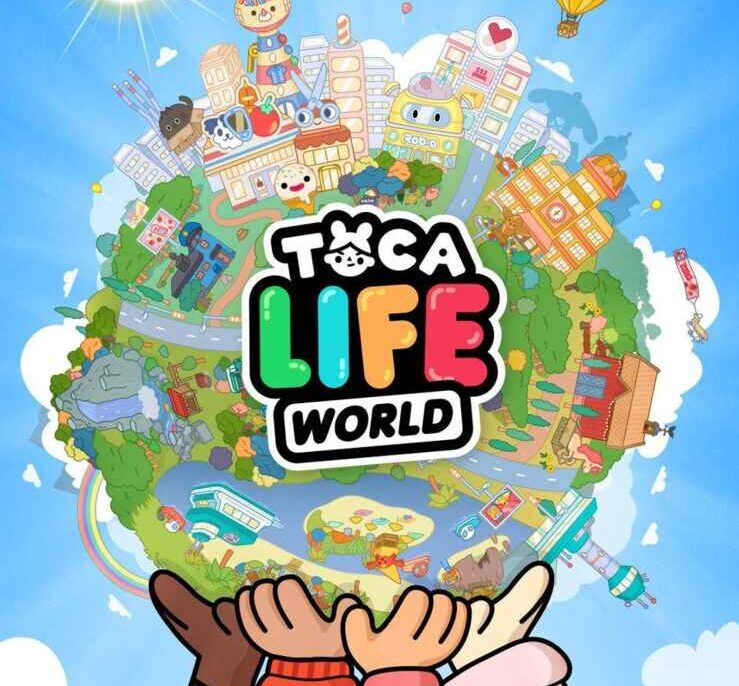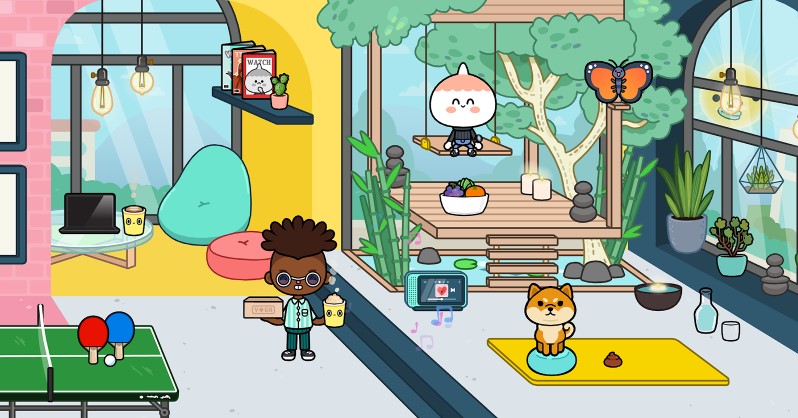
Introduction
Toca Boca is one of the most innovative and widely celebrated game developers in the mobile gaming industry, specifically known for its children’s interactive and educational games. With over 50 million downloads across various titles, Toca Boca has become synonymous with games that are both entertaining and educational. The games, which range from imaginative playhouses to hair salons, encourage children to explore their creativity and solve problems in a non-competitive and open-ended environment.
However, beyond just being a source of entertainment, Toca Boca games have been widely discussed for their impact on child development. These games don’t simply engage kids with fun challenges and colorful graphics; they promote key aspects of cognitive, emotional, and social growth. This article takes a deep dive into one specific aspect of Toca Boca games that has sparked both praise and concern: their influence on fostering creativity and social-emotional skills in children.
In this article, we will examine how Toca Boca games contribute to child development, the specific skills they nurture, and their potential long-term effects on young players. We will also consider the role of open-ended, non-structured gameplay in cognitive development and address concerns regarding screen time and the need for balance in children's digital consumption.
1. The Philosophy Behind Toca Boca: Creating an Open-Ended Digital Playground
The Toca Boca Approach to Gameplay
Toca Boca has a distinctive philosophy when it comes to game design. Rather than focusing on points, levels, or rewards, Toca Boca games emphasize open-ended play. The games are free from rigid rules or goals, allowing children to dictate the direction of the game through their actions. This open-ended approach encourages children to engage in creative decision-making and problem-solving in a safe and playful environment.
-
Toca Life Series: One of the most popular series, Toca Life (which includes Toca Life: City, Toca Life: World, etc.), is based around building stories and experiences. The game provides different “worlds,” each with its own characters, locations, and activities. There is no fixed objective, so children are free to explore, experiment, and create their own narratives.
-
Toca Kitchen: Another example of Toca Boca’s open-ended philosophy, Toca Kitchen lets children play chef, creating bizarre food combinations and experimenting with ingredients. The game encourages creativity and exploration of food concepts without any time pressure or external constraints.
The freedom in these games allows children to express themselves without the fear of failure, fostering creativity and independent thinking. Unlike many other games that come with strict instructions, Toca Boca titles empower children to learn through self-guided exploration.
2. Creativity Unleashed: How Toca Boca Promotes Imagination
Building a Creative Mindset
The most significant benefit of Toca Boca games lies in their ability to nurture and foster creativity. In Toca Boca’s virtual worlds, children are provided with tools and environments that enable them to experiment and build. For example:
-
Toca Builders: This game allows players to construct and design their own worlds using building blocks and creative tools. It mirrors the hands-on activities many children engage in, like playing with Lego or building with physical blocks, except in a digital format.
-
Toca Hair Salon: In this game, children take on the role of a hairstylist, using tools to create unique hairstyles for a variety of characters. The game not only stimulates creativity in terms of visual design but also encourages children to make aesthetic choices based on their preferences.
Promoting Visual and Problem-Solving Creativity
As children explore the many scenarios and tools within Toca Boca games, they engage in problem-solving and design thinking. For instance, when using the Toca Builders, they might encounter challenges such as how to stabilize their building, what materials to use, or how to plan their structure. These challenges mirror real-world situations that require practical, creative solutions.
3. Social and Emotional Development Through Role Play
Exploring Empathy and Social Skills
Beyond creativity, Toca Boca games also offer immense benefits in terms of social-emotional development. The games allow players to embody different roles, whether that’s a chef, a doctor, or a hairstylist. This ability to engage in role play helps children develop an understanding of different perspectives, fostering empathy and social skills.
-
Toca Life: Hospital: In this game, players take on the role of healthcare providers, caring for sick patients. Children can simulate emotional responses to seeing a patient in pain and practice empathy by "caring" for them. This mirrors real-life experiences of helping others in need and gives children the opportunity to explore the emotional landscape of caring for others.
-
Toca Life: School: Similarly, the Toca Life: School game allows players to act out school-related scenarios, such as being a teacher, a student, or a janitor. Through this, children can explore various emotions related to school life, such as frustration, friendship, and cooperation.
Building Emotional Awareness
As children engage with the characters in Toca Boca games, they begin to learn more about emotions—both their own and others. They also gain skills related to conflict resolution, sharing, and emotional expression.
Tip: Encourage children to discuss their feelings and the feelings of others when playing Toca Boca games. This can lead to richer emotional insights and the ability to recognize different emotional states.
4. The Importance of Non-Linear Gameplay: Fostering Independence
Independence and Self-Direction
One of the most unique features of Toca Boca games is their non-linear structure. Many games in the Toca Life series, for example, lack time limits, high scores, or set objectives, allowing children to engage in the game at their own pace. This lack of external pressure fosters independence and encourages children to make decisions based on their interests rather than on the desires of the game.
Children learn to be self-reliant, exploring various features of the game without being told what to do next. They create their own goals and strategies, developing decision-making skills that are invaluable in the real world.
5. Accessibility and Inclusivity: How Toca Boca Supports Diverse Players
Creating an Inclusive Digital Space
Toca Boca has made significant strides in ensuring that their games are inclusive and accessible to a wide range of children. The absence of text-heavy instructions makes the games accessible to younger children or those who may not be able to read fluently. This is especially important in promoting language development.
Moreover, Toca Boca games are diverse in their character designs, showcasing a wide range of cultures, ethnicities, and body types. This inclusivity fosters a sense of belonging and allows children to see themselves reflected in the game, enhancing self-esteem and a sense of identity.
6. Concerns Around Screen Time and Digital Play

Balancing Digital Play with Real-World Interaction
While Toca Boca games provide numerous developmental benefits, there are also concerns related to screen time. Studies suggest that excessive digital play can have negative effects on children’s development, particularly when it comes to social skills and physical activity.
The Importance of Balance:
It is essential for children to balance digital play with other types of play, including outdoor activities and in-person interactions. Parents and caregivers should monitor how much time children spend on their devices and make an effort to encourage them to engage in offline play, especially physical activities.
7. Parental Controls: Ensuring a Safe Gaming Environment
Safe and Secure Play for Children
Toca Boca has incorporated parental controls to ensure that children’s experiences are safe and appropriate. With options to limit screen time, turn off in-app purchases, and manage content, Toca Boca provides tools that allow parents to monitor their children’s gaming habits.
By offering a controlled gaming experience, Toca Boca ensures that parents can feel secure in the knowledge that their children are engaging with a safe digital platform.
8. The Role of Toca Boca in Modern Education
The Use of Toca Boca in Schools and Education
In addition to being a staple for home entertainment, Toca Boca games have begun to make their way into classrooms and educational environments. The open-ended nature of these games allows teachers to integrate them into educational activities, using the games to foster creativity, problem-solving, and social interaction in a fun and engaging way.
-
STEM Learning: Toca Boca games like Toca Builders are excellent for introducing children to basic concepts of engineering and design.
-
Language Development: Many of the Toca Life games include scenarios that require children to express themselves verbally, enhancing their language development and storytelling skills.
9. The Impact of Toca Boca on Cognitive Development
Enhancing Cognitive Skills
Playing Toca Boca games also supports various aspects of cognitive development. Games like Toca Builders involve spatial reasoning, while Toca Hair Salon improves fine motor skills as children manipulate virtual tools. These games encourage kids to think critically, solve problems, and engage in mental planning, all of which are essential to cognitive growth.
-
Memory and Sequencing: Games that require children to remember steps, repeat patterns, or sequence actions promote memory and attention to detail.
-
Focus and Attention: The non-competitive nature of Toca Boca games helps children practice sustained focus, as they engage deeply with the virtual worlds.
10. Conclusion: Toca Boca’s Long-Term Impact on Child Development

In conclusion, Toca Boca games are much more than just digital toys. Their innovative design, focusing on creativity, social-emotional skills, independence, and inclusivity, positions them as valuable tools for fostering well-rounded development in children. Through open-ended play, children learn essential life skills, from empathy and problem-solving to critical thinking and emotional intelligence.
While screen time should always be balanced with other activities, Toca Boca’s games provide a safe, educational, and enriching experience that can positively impact a child’s growth, both cognitively and emotionally. By understanding the deeper implications of these games, parents, educators, and developers can ensure that children make the most out of their interactive digital experiences.






 VR Chat
VR Chat in 2025 is a thriving social metaverse blending identity, creativity, and tech, shaped by user innovation and evolving digital culture.
Read full review
VR Chat
VR Chat in 2025 is a thriving social metaverse blending identity, creativity, and tech, shaped by user innovation and evolving digital culture.
Read full review
 Free Fire
How to get Free Fire
This page contains links to the official sources of the app Free Fire. So that you do not have problems with getting the app, we have prepared a detailed instruction.
How to get Free Fire from the official store.
To quickly and painlessly get the Free Fire app on the Official Store, you should use the following instructions.
Go to the Get for PC button.
If you use a browser on a PC or mobile device, you’ll go to the Free Fire app page on the official store website.
To get the app through the browser, you need to log in to your account in the store and add it to the library.
Read full review
Free Fire
How to get Free Fire
This page contains links to the official sources of the app Free Fire. So that you do not have problems with getting the app, we have prepared a detailed instruction.
How to get Free Fire from the official store.
To quickly and painlessly get the Free Fire app on the Official Store, you should use the following instructions.
Go to the Get for PC button.
If you use a browser on a PC or mobile device, you’ll go to the Free Fire app page on the official store website.
To get the app through the browser, you need to log in to your account in the store and add it to the library.
Read full review
 Stumble Guys
Stumble Guys offers addictive, chaotic fun with vibrant visuals and simple mechanics. It’s a hit in the party game genre, with a bright future ahead.
Read full review
Stumble Guys
Stumble Guys offers addictive, chaotic fun with vibrant visuals and simple mechanics. It’s a hit in the party game genre, with a bright future ahead.
Read full review
 Call of Duty
The latest Call of Duty game introduces major innovations in gameplay, graphics, and features. While it faces some criticisms, it delivers a compelling experience that continues to influence the genre.
Read full review
Call of Duty
The latest Call of Duty game introduces major innovations in gameplay, graphics, and features. While it faces some criticisms, it delivers a compelling experience that continues to influence the genre.
Read full review
 Valorant
Valorant has established itself as a premier tactical FPS, combining precise gunplay, strategic depth, and a vibrant competitive scene. While the game faces challenges such
Read full review
Valorant
Valorant has established itself as a premier tactical FPS, combining precise gunplay, strategic depth, and a vibrant competitive scene. While the game faces challenges such
Read full review
 NBA 2K24
NBA 2K24 offers major upgrades in gameplay, graphics, and features, with innovative elements and community feedback shaping its impact in the sports gaming genre.
Read full review
NBA 2K24
NBA 2K24 offers major upgrades in gameplay, graphics, and features, with innovative elements and community feedback shaping its impact in the sports gaming genre.
Read full review